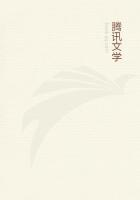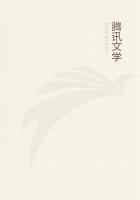Then came the journey up to London through Birmingham and the Black District, another lesson, which needed much more to be rightly felt. The plunge into darkness lurid with flames; the sense of unknown horror in this weird gloom which then existed nowhere else, and never had existed before, except in volcanic craters; the violent contrast between this dense, smoky, impenetrable darkness, and the soft green charm that one glided into, as one emerged -- the revelation of an unknown society of the pit -- made a boy uncomfortable, though he had no idea that Karl Marx was standing there waiting for him, and that sooner or later the process of education would have to deal with Karl Marx much more than with Professor Bowen of Harvard College or his Satanic free-trade majesty John Stuart Mill. The Black District was a practical education, but it was infinitely far in the distance. The boy ran away from it, as he ran away from everything he disliked.
Had he known enough to know where to begin he would have seen something to study, more vital than the Civil Law, in the long, muddy, dirty, sordid, gas-lit dreariness of Oxford Street as his dingy four-wheeler dragged its weary way to Charing Cross. He did notice one peculiarity about it worth remembering. London was still London. A certain style dignified its grime; heavy, clumsy, arrogant, purse-proud, but not cheap; insular but large; barely tolerant of an outside world, and absolutely self-confident. The boys in the streets made such free comments on the American clothes and figures, that the travellers hurried to put on tall hats and long overcoats to escape criticism. No stranger had rights even in the Strand. The eighteenth century held its own. History muttered down Fleet Street, like Dr. Johnson, in Adams's ear; Vanity Fair was alive on Piccadilly in yellow chariots with coachmen in wigs, on hammer-cloths; footmen with canes, on the footboard, and a shrivelled old woman inside; half the great houses, black with London smoke, bore large funereal hatchments; every one seemed insolent, and the most insolent structures in the world were the Royal Exchange and the Bank of England. In November, 1858, London was still vast, but it was the London of the eighteenth century that an American felt and hated.
Education went backward. Adams, still a boy, could not guess how intensely intimate this London grime was to become to him as a man, but he could still less conceive himself returning to it fifty years afterwards, noting at each turn how the great city grew smaller as it doubled in size; cheaper as it quadrupled its wealth; less imperial as its empire widened; less dignified as it tried to be civil. He liked it best when he hated it. Education began at the end, or perhaps would end at the beginning. Thus far it had remained in the eighteenth century, and the next step took it back to the sixteenth. He crossed to Antwerp. As the Baron Osy steamed up the Scheldt in the morning mists, a travelling band on deck began to play, and groups of peasants, working along the fields, dropped their tools to join in dancing.
Ostade and Teniers were as much alive as they ever were, and even the Duke of Alva was still at home. The thirteenth-century cathedral towered above a sixteenth-century mass of tiled roofs, ending abruptly in walls and a landscape that had not changed. The taste of the town was thick, rich, ripe, like a sweet wine; it was mediæval, so that Rubens seemed modern; it was one of the strongest and fullest flavors that ever touched the young man's palate; but he might as well have drunk out his excitement in old Malmsey, for all the education he got from it. Even in art, one can hardly begin with Antwerp Cathedral and the Descent from the Cross. He merely got drunk on his emotions, and had then to get sober as he best could.
He was terribly sober when he saw Antwerp half a century afterwards. One lesson he did learn without suspecting that he must immediately lose it.
He felt his middle ages and the sixteenth century alive. He was young enough, and the towns were dirty enough -- unimproved, unrestored, untouristed -- to retain the sense of reality. As a taste or a smell, it was education, especially because it lasted barely ten years longer; but it was education only sensual. He never dreamed of trying to educate himself to the Descent from the Cross. He was only too happy to feel himself kneeling at the foot of the Cross; he learned only to loathe the sordid necessity of getting up again, and going about his stupid business.
This was one of the foreseen dangers of Europe, but it vanished rapidly enough to reassure the most anxious of parents. Dropped into Berlin one morning without guide or direction, the young man in search of education floundered in a mere mess of misunderstandings. He could never recall what he expected to find, but whatever he expected, it had no relation with what it turned out to be. A student at twenty takes easily to anything, even to Berlin, and he would have accepted the thirteenth century pure and ****** since his guides assured him that this was his right path; but a week's experience left him dazed and dull. Faith held out, but the paths grew dim. Berlin astonished him, but he had no lack of friends to show him all the amusement it had to offer. Within a day or two he was running about with the rest to beer-cellars and music-halls and dance-rooms, smoking bad tobacco, drinking poor beer, and eating sauerkraut and sausages as though he knew no better. This was easy. One can always descend the social ladder. The trouble came when he asked for the education he was promised.
His friends took him to be registered as a student of the university; they selected his professors and courses; they showed him where to buy the Institutes of Gaius and several German works on the Civil Law in numerous volumes; and they led him to his first lecture.















